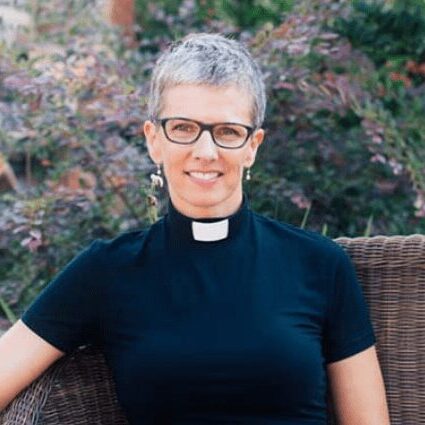Many preachers struggle to craft a clear message that listeners can follow from start to finish.
In addition, many sermons purport to proclaim the gospel but don’t actually talk about God much.
Here are three suggestions to ensure your sermon is clear and meaningful.
1. Remember: Commentaries are helpful, but you are the commentator your congregation needs.
Starting with Scripture may seem obvious, but it isn’t to many.
The anxiety and time pressure to produce a new insight by Sunday morning causes many to glance at the lesson, trust their familiarity with it, and then dive straight into commentaries to search for the “aha!” insight that leads to the sermon’s message.
But I say to you: you are the commentator!
You are the one ordained to preach to this congregation.
You know your people best and what word they need from God.
You are the one your listeners want to hear from.
It’s your comments gleaned from your prayer and study they want—need—to hear!
And that means your best friend for sermon prep is Scripture. Not other commentators.
Yes, head to the commentaries at some point to glean the wisdom of the communion of saints.
But of all the time you spend on your prep prior to writing, the majority should be spent studying the text—not the commentaries.
It’s your communion with the Spirit and the text that reveals God—and therefore your message, too.
2. Keep the sermon’s focus on God as revealed by the Scripture
When you read your manuscript or review the audio or video recordings of your sermons (and you do review them, don’t you?), what percentage of the words or time is spent talking about God?
I hear many sermons that claim to be a “sermon,” but they don’t actually talk about God. They don’t illuminate the Good News.
God and Scripture get mentioned, sure. A sentence or two, maybe a paragraph. But most of the sermon is spent on anecdotes, illustrations, and other supporting elements.
Especially with the increase of biblical illiteracy, people need to hear and learn who God is as revealed through Scripture.
For the stories, illustrations, quotes, and references to have weight and impact, they must be firmly rooted in the Scripture itself. They cannot be a substitute for it.
Your sermon makes a claim about God. And as the preacher, your job is to show how Scripture reveals God to be who you claim God is—with stories, illustrations, quotes, and references to aid that explanation.
Go back to your last three sermons and count the paragraphs.
How many talked about God or the Scripture passage itself?
What was the balance?
Next sermon, weight it in God’s favor.
3. Summarize your sermon in one sentence
There is a lot of flexibility in sermons: format, tone, length, message.
That’s one of the reasons I love to preach and listen to others: no one preaches like anyone else!
But there’s one thing that can’t be flexible.
In fact, it’s one of the few things I coach with rigidity.
Preachers have to be able to summarize their sermon message in one, complete sentence.
And I mean that literally:
- a complete sentence
- with a subject, verb, and punctuation
- that is concise: only six to ten words.
Why do I make a big deal about this?
Because it pushes us to make a decision: what is this one sermon going to say?
If we can’t construct that one sentence, we almost certainly have more than one sermon without realizing it.
And that’s why sermons wander. That’s why listeners, when they leave, can’t tell someone else what it was about.
For your audience to be clear, you must be clear. And the only way to know for certain you’re clear is to write it out.
Then let the sentence be your editor. Write that sentence at the top of every page to remind you to stay on task. Even if you work your sermons out in your head, define your sentence and say it out loud seven times in a row so it’s grafted on your heart.
Your sermon will stay focused, which will keep people’s attention so they hear the Good News.
Why it Matters
Why do these strategies matter?
Because when you spend your prep time prayerfully engaging Scripture, you can receive the message God has for you and your congregation. Thus, listeners are more apt to connect to your message.
When your sermon focuses on who God is, what God does, and why it’s Good News, your listeners are more likely to trust the message. Because they can see how God is operating in that historical context. And they can connect that context to their own. They don’t have to take your word for it based on an anecdote and a quote from a theologian. You’ve shown them from the text with illustrations to bear out the point.
Finally, when your message is clear, it’s memorable. It’s transferable. The message becomes etched in their hearts. In turn, your listeners are more likely to recall God’s goodness when they run into the challenges of being human.
In short, your sermons become more effective.
And effective sermons are what Backstory Preaching is all about.
This is the first in a series of blog posts that explores the definition of an effective sermon, created and applied by Backstory Preaching:
“An effective sermon offers a clear message of Good News authentic to the preacher, relevant to the listeners, holding their attention, and inviting transformation.”
Next time: What makes a sermon “authentic to the preacher?” Hint: it’s not about divulging your personal life. But your backstory proves essential.
Backstory Preaching is the all-online sermon prep and continuing education center for preachers, lay and ordained, in the Anglican and Mainline Protestant traditions. The Rev’d Dr. Lisa Cressman, an Episcopal priest, is its Founding Steward.



